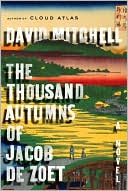Category Books
- Fiction Books & Literature
- Graphic Novels
- Horror
- Mystery & Crime
- Poetry
- Romance Books
- Science Fiction & Fantasy
- Thrillers
- Westerns
- Ages 0-2
- Ages 3-5
- Ages 6-8
- Ages 9-12
- Teens
- Children's Books
- African Americans
- Antiques & Collectibles
- Art, Architecture & Photography
- Bibles & Bible Studies
- Biography
- Business Books
- Christianity
- Computer Books & Technology Books
- Cookbooks, Food & Wine
- Crafts & Hobbies Books
- Education & Teaching
- Engineering
- Entertainment
- Foreign Languages
- Game Books
- Gay & Lesbian
- Health Books, Diet & Fitness Books
- History
- Home & Garden
- Humor Books
- Judaism & Judaica
- Law
- Medical Books
- New Age & Spirituality
- Nonfiction
- Parenting & Family
- Pets
- Philosophy
- Political Books & Current Events Books
- Psychology & Psychotherapy
- Reference
- Religion Books
- Science & Nature
- Self Improvement
- Sex & Relationships
- Social Sciences
- Sports & Adventure
- Study Guides & Test Prep
- Travel
- True Crime
- Weddings
- Women's Studies
The Thousand Autumns of Jacob de Zoet »

Authors: David Mitchell
ISBN-13: 9781400065455, ISBN-10: 1400065453
Format: Hardcover
Publisher: Random House Publishing Group
Date Published: June 2010
Edition: (Non-applicable)
Author Biography: David Mitchell
David Mitchell is one of Granta’s Best of Young British Novelists 2003. His first novel, Ghostwritten, won the Mail on Sunday/John Llewellyn Rhys Prize and was shortlisted for the Guardian First Book Award and his second, number9dream, was shortlisted for the Booker Prize. He lives in Herefordshire, England.
Book Synopsis
The year is 1799, the place Dejima in Nagasaki Harbor, the Japanese Empire’s single port and sole window onto the world, designed to keep the West at bay. To this place of devious merchants, deceitful interpreters, and costly courtesans comes Jacob de Zoet, a devout young clerk who has five years in the East to earn a fortune of sufficient size to win the hand of his wealthy fiancée back in Holland. But Jacob’s original intentions are eclipsed after a chance encounter with Orito Aibagawa, the disfigured midwife to the city’s powerful magistrate. The borders between propriety, profit, and pleasure blur until Jacob finds his vision clouded, one rash promise made and then fatefully broken—the consequences of which will extend beyond Jacob’s worst imaginings.
Look for special features inside.
Join the Circle for author chats and more.
RandomHouseReadersCircle.com
The Barnes & Noble Review
This is entertaining stuff, though it may seem slightly odd to readers who know Mitchell for his novel Cloud Atlas, which nested multiple narratives, set in eras ranging from the 1850s to the post-apocalyptic future, like ingeniously conceived Russian dolls. The Thousand Autumns eschews such devices: it unfurls like a scroll, from start to finish, often following de Zoet, but forsaking him for long passages to inhabit the mind of Orito Aibagawa, a Japanese midwife with whom de Zoet falls in love; the interpreter Uzaemon Ogawa; the captain of an English warship, and others. These shifts give Mitchell the chance to "do voices," or rather, to do worlds: the court of Nagasaki's Magistrate, the warehouses of Deshima, the decks of a warship. His Japan is meticulously researched (it probably didn't hurt that he lived in Hiroshima for eight years) and his Dutchmen, too. (De Zoet has a real-life model, Hendrik Doeff, who served the Dutch East India Co. on Deshima from 1803 to 1818.) Indeed, there are places in the novel where Mitchell gives vent to a Bolaño-like excess of detail, as when the Dutch scientist Dr. Marinus gives a lecture to a group of Japanese students, and Uzaemon struggles to translate:
Uzaemon does his best to translate this, but it isn't easy: surely the Dutch word 'semen' cannot be related to this unknown verb 'disseminate'? Goto Shinpachi anticipates his colleague's difficulty and suggests 'distribute.' Uzaemon guesses 'germinate' means 'is accepted,' but is warned by suspicious glances from the Shirandō's audience: If we don't understand the speaker, we blame the interpreter.
The description is so precise that it's practically educational: you could learn how to deliver a baby from this book, or fire a ship's gun, or identify a few Japanese characters. So much attention to the minutia of procedure slows the narrative to the courtly pace of Noh theater, but Mitchell is a good enough storyteller that the book rarely bogs down.
Table of Contents
Subjects
 Fiction Subjects
Fiction Subjects  Love & Relationships - Fiction
Love & Relationships - FictionNonfiction
 History
History  Historical Fiction
Historical Fiction
